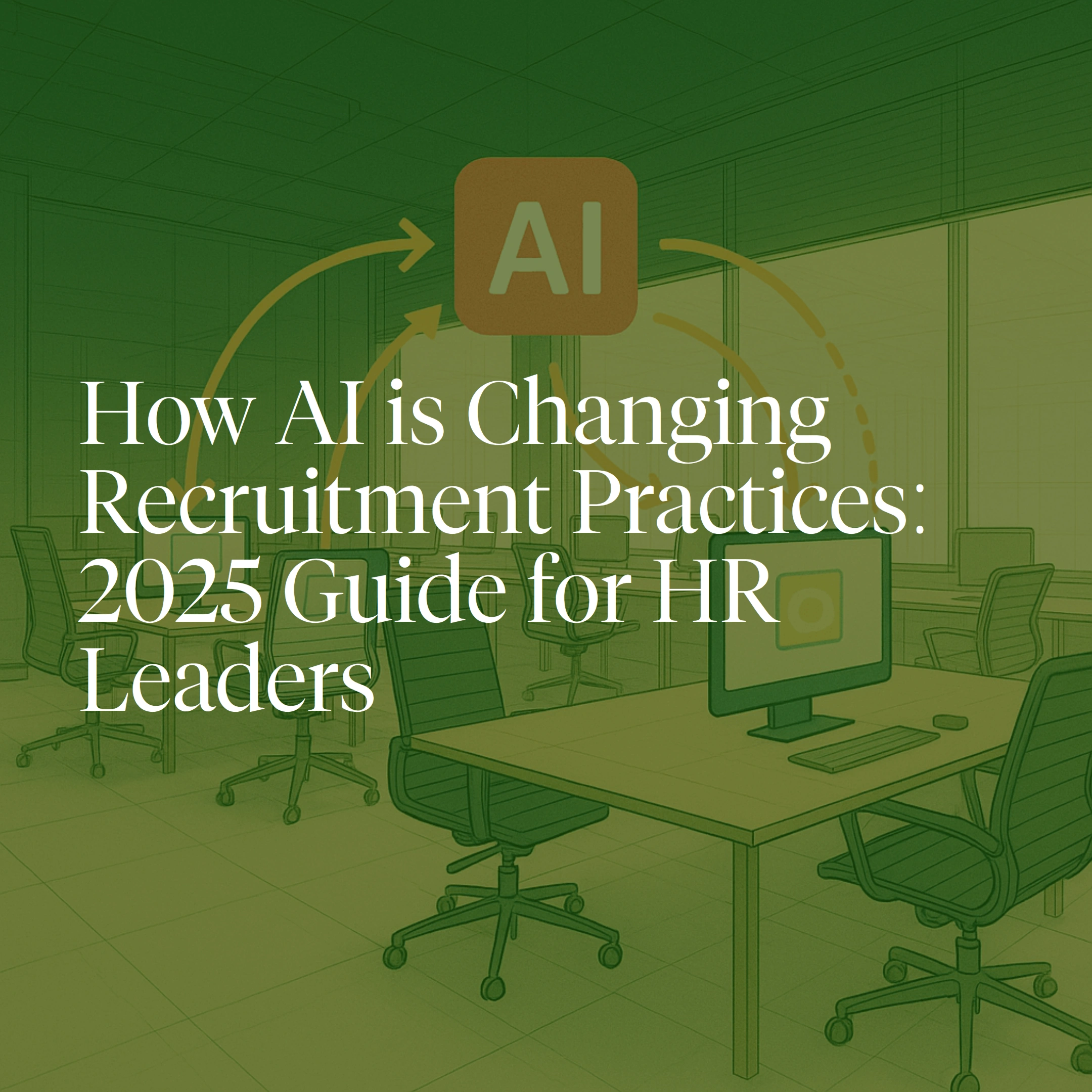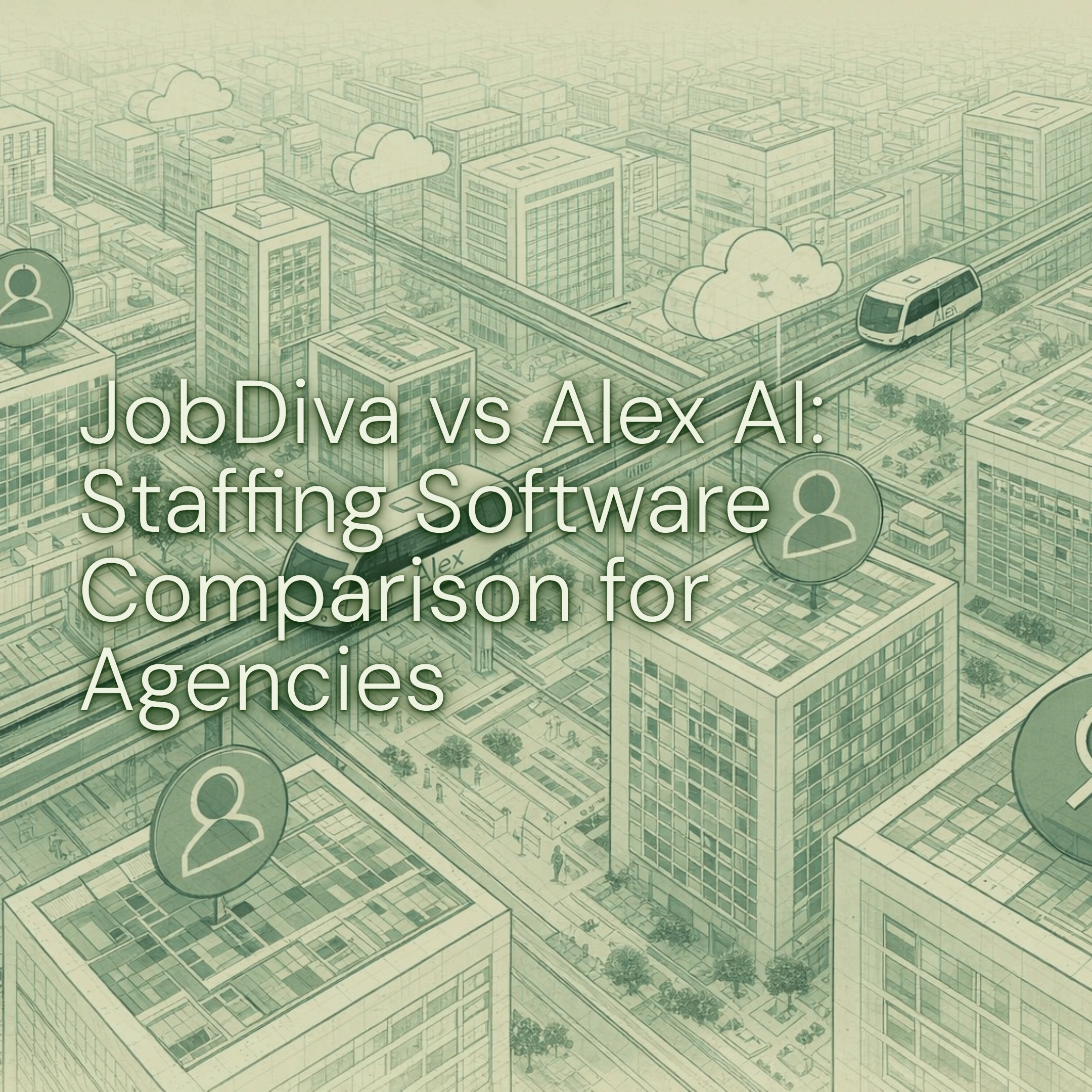How AI is Changing Recruitment Practices: 2025 Guide for HR Leaders

87% of companies now use AI-driven tools to streamline hiring in 2025, from resume screening and candidate matching to automated scheduling and interview support. The result: recruiting teams cut time-to-hire by 40% and reclaim 75% of the hours previously spent on administrative tasks.
This guide explores how AI is reshaping recruitment practices, what it means for your team, and how to adopt the right tools to stay competitive while attracting top talent.
1. Smarter Sourcing Through AI Talent Discovery
Traditional sourcing has always been labor-intensive. Recruiters spend hours crafting Boolean searches, scanning LinkedIn profiles, or posting jobs across multiple boards. AI is transforming this process into a streamlined, data-driven engine.
AI talent discovery tools mine billions of data points across public platforms such as GitHub, Stack Overflow, and research publications. Instead of recruiters manually finding candidates, machine learning algorithms build ranked shortlists based on skills, work history, and even subtle indicators of expertise such as open-source project contributions.
Programmatic job advertising has also evolved. AI-driven ad platforms optimize spend in real time by automatically reallocating budget to the channels that deliver the best candidate matches. For example, if data shows higher click-to-apply rates from niche developer communities than from LinkedIn ads, the system adjusts instantly.
This shift does two things:
- Expands reach beyond obvious talent pools to help recruiters engage candidates before competitors even spot them.
- Eliminates manual search tasks so recruiters can reclaim hours per week
For HR leaders, AI-powered sourcing means pipelines are filled faster, with higher-quality candidates, while recruiters focus on meaningful conversations instead of list-building.
2. Personalized Candidate Engagement at Scale
Once candidates have been identified, engagement is where many pipelines stall. Cold outreach often feels impersonal, while follow-ups can be inconsistent. AI is changing this dynamic by enabling personalized, scalable communication.
Natural language generation tools craft tailored outreach messages that reference a candidate’s background, recent work, or shared interests. For example, instead of sending “We saw your profile and think you’d be a fit,” AI can generate an email that highlights a candidate’s recent open-source contribution or conference talk. This results in higher response rates compared to generic messaging.
Conversational AI is also making a difference post-application. Intelligent chatbots answer candidate questions 24/7, schedule interviews, and keep applicants engaged even outside business hours. This ensures fewer drop-offs due to silence or delays.
Another notable shift is multilingual engagement. AI assistants can converse fluently in dozens of languages, which enables companies to recruit globally without overextending recruiters. For HR leaders, this means broader reach into international talent markets without needing to hire recruiters who speak other languages.
3. Automated Resume Screening and Candidate Shortlisting
Resume review has historically been one of the biggest time drains in recruitment. Studies show recruiters spend just 7.4 seconds on average scanning a CV, often missing qualified candidates or filtering based on subjective impressions.
AI is transforming this by introducing natural language processing (NLP) resume screening. These systems parse thousands of resumes in seconds to match them to role requirements while also surfacing transferable skills that might be overlooked in manual review.
Beyond keyword matching, AI assesses context. For example, it will understand whether “Java” is listed in a recent work project, a single certification, or multiple roles over a decade. This nuance ensures candidates aren’t unfairly filtered out.
Recruiters using AI screening spend less time sorting resumes and more time building relationships with qualified candidates. Meanwhile, for HR leaders, AI screening ensures consistency and fairness, reduces unconscious bias in early filtering, and significantly accelerates the hiring funnel.
4. AI-Powered Interviewing and Assessment
Interviewing has long been a bottleneck in the hiring process. It’s difficult to coordinate calendars, prepare questions, assess performance, and make smart, fair hiring decisions across hundreds of qualified candidates. Luckily, there are many use cases where AI can help streamline this process and eliminate busywork for recruiters.
Conversational AI eliminates the “email ping-pong” recruiters endure daily. Candidates select slots directly, with automatic rescheduling if conflicts arise. This removes scheduling from recruiter task lists entirely so they don’t waste hours on back-and-forth every week.
Beyond logistics, AI is now conducting interviews itself. AI recruiting partners like Alex can hold structured, role-specific conversations at scale. Candidates can interview at any time, in any time zone, with responses analyzed against calibrated scoring models.
The real advantage is scale and coverage. While human recruiters max out at 16 interviews daily, Alex handles over 5,000. Even better: 48% of Alex interviews happen after hours to keep candidates moving when your team is offline.
AI-powered recruiting tools also assess candidates rigorously. Platforms like Alex track keystrokes during coding tests, analyze voice patterns for scripted responses, and monitor behavior for signs of AI assistance or cheating. Every candidate faces identical questions and scoring criteria to remove the variability that creeps into human-led interviews.
For HR leaders, the result is faster, fairer, and more consistent interviews, without overloading recruiters or interview panels.
5. Bias Reduction and Fair Assessment
AI reduces bias by removing the subjective judgment that creeps into manual screening. Resume anonymization strips out names, addresses, and universities that trigger unconscious bias. Meanwhile, structured interviews ensure every candidate gets identical questions in the same tone, with scoring based on objective criteria instead of gut feel.
Advanced systems include bias monitoring that flags when models disproportionately favor or disadvantage specific groups. HR leaders can audit results regularly to align with GDPR, CCPA, and EEOC requirements. Platforms like Alex maintain GDPR compliance with built-in audit trails that document every hiring decision.
AI won't eliminate all bias, but it removes variability and creates defensible processes that manual screening can't match.
6. Faster Offers and Seamless Onboarding
The offer stage is where good candidates accept other jobs while waiting. Offer letters take days to draft and route for approval. Background checks stretch into weeks. Signature collection turns into email tag. An AI recruiting partner eliminates these delays by generating personalized offers instantly, automating background checks, and collecting signatures through integrated e-signature platforms—no manual data entry required.
Chatbots also manage onboarding by answering FAQs, collecting forms, and scheduling IT and equipment setup. For HR leaders, this ensures a smoother candidate experience, fewer drop-offs, and faster time-to-productivity for new hires.
7. Better Compliance, Data Security, and Auditability
AI is also reshaping compliance in recruitment. With regulations tightening worldwide, companies must ensure hiring practices meet GDPR, CCPA, and other regional laws.
AI helps by:
- Automating background checks and right-to-work verification
- Creating audit logs of every decision point
- Embedding retention timers for candidate data
These features let HR leaders move faster without compliance worries. Automated checks, audit logs, and data retention policies handle the regulatory requirements that used to require manual tracking.
8. Measurable ROI and Strategic Impact
The final way AI is changing recruitment is in how HR leaders measure hiring success. Instead of only time-to-hire, AI-enabled recruiting partners can track other useful metrics like:
- Cost-per-quality-hire: Value delivered by hires, not just hiring costs.
- Recruiter hours reclaimed: Time freed from administrative tasks.
- Candidate Net Promoter Score (NPS): Experience quality at every hiring stage.
- Time-to-productivity: Speed to full performance for new hires.
Real-time dashboards give HR leaders the data to prove talent acquisition drives competitive advantage, not just hiring costs.
Hire Smarter at Scale with Alex
AI makes it possible to interview every candidate thoroughly without bottlenecking your team or compromising quality. Recruiting leaders who adopt the right tools gain both speed and consistency advantages their competitors can't match manually.
Alex conducts 5,000+ interviews daily with a 92% five-star candidate rating. As your AI recruiting partner, it can handle two-way conversations that assess technical skills and detect interview fraud. Plus, 48% of interviews happen outside working hours, so candidates advance overnight while your recruiters focus on relationships and hiring decisions.
HR leaders using Alex accelerate time-to-hire, maintain candidate quality, and free their teams from scheduling and screening busywork. Your recruiters get their time back for strategic work. And candidates get faster, fairer interviews.
Book a demo of Alex today to see all the AI capabilities covered here live: automated screening, conversational interviews with fraud detection, and real-time analytics on hiring impact.
Our last posts
The latest news, interviews, and resources.
Stay ahead of the crowd
Subscribe to our official company blog to get notified of exciting features, new products, and other recruiting news ahead of everyone else.

.webp)
.webp)
